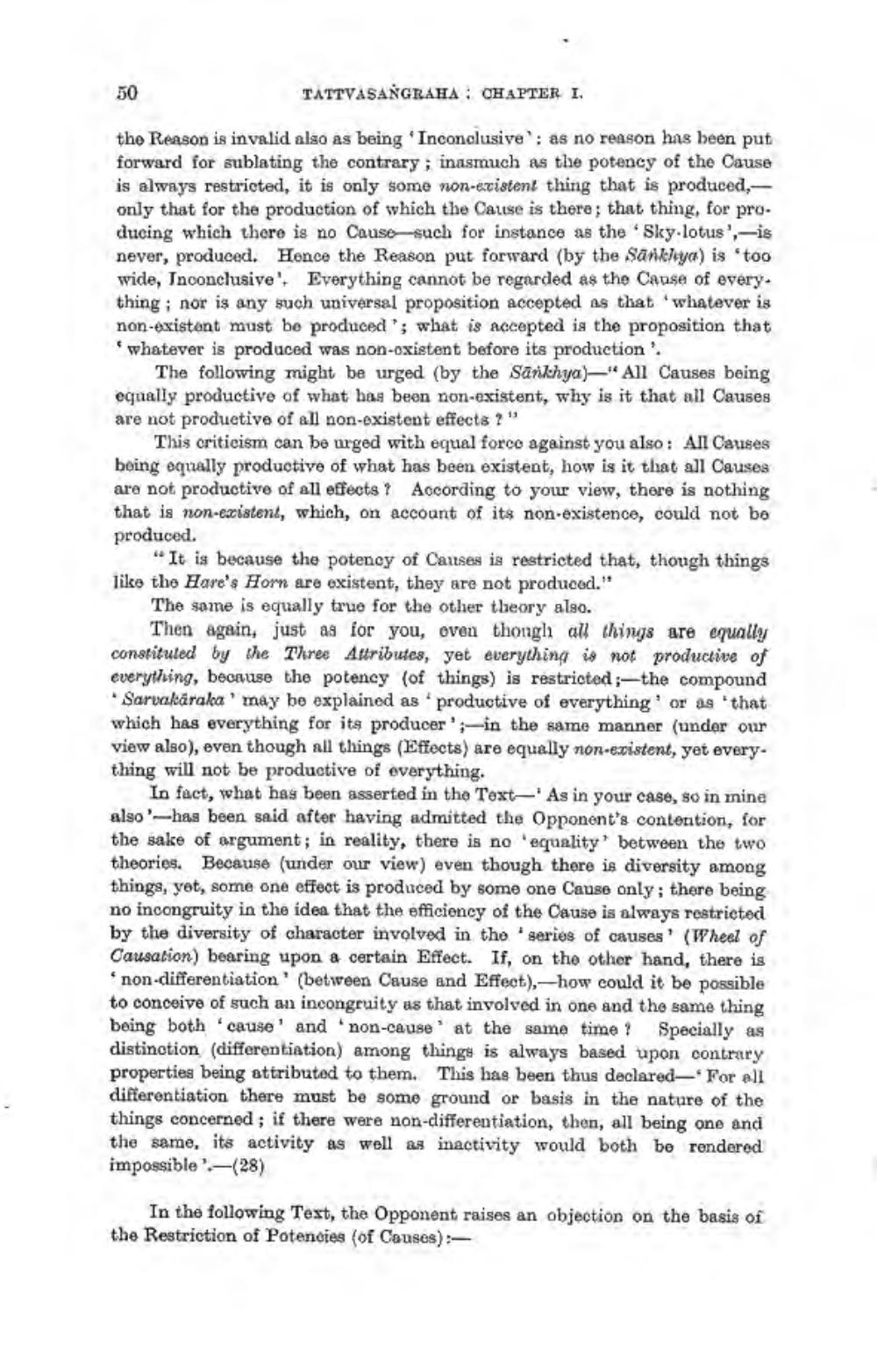________________
50
TATTVASANGRAHA CHAPTER I.
the Reason is invalid also as being 'Inconclusive': as no reason has been put forward for sublating the contrary; inasmuch as the potency of the Cause is always restricted, it is only some non-existent thing that is produced, only that for the production of which the Cause is there; that thing, for pro. ducing which there is no Cause-such for instance as the 'Sky.lotus', -is never, produced. Honce the Reason put forward (by the Sandhya) is 'too wide, Inconclusive' Everything cannot be regarded as the Cause of every. thing ; nor is any such universal proposition accepted as that whatever is non-existent must be produced '; what is accepted is the proposition that whatever is produced was non-existent before its production'.
The following might be urged (by the Sarkhya)—"All Causes being equally productive of what has been non-existent, why is it that all Causes are not productive of all non-existent effects ?"
This criticism can be urged with equal force against you also : All Causes being equally productive of what has been existent, how is it that all Causes are not productive of all effects? According to your view, there is nothing that is non-existent, which, on account of its non-existence, could not be produced
"It is because the potency of Causes is restricted that, though things like the Hare's Horn are existent, they are not produced."
The same is equally true for the other theory also.
Then again, just as for you, even though all things are equally constituted by the Three Attributes, yet everything is not productive of everything, because the potency (of things) is restricted ;-the compound
Sarvakärala' may be explained as productive of everything' or as 'that which has everything for its producer';-in the same manner (under our view also), even though all things (Effects) are equally non-existent, yet everything will not be productive of everything.
In fact, what has been asserted in the Text-'As in your case, so in mine also '-has been said after having admitted the Opponent's contention, for the sake of argument; in reality, there is no 'equality between the two theories. Because (under our view) even though there is diversity among things, yet, some one effect is produced by some one Cause only; there being no incongruity in the idea that the efficiency of the Cause is always restricted by the diversity of character involved in the series of causes' (Wheel of Causation) bearing upon a certain Effect. If, on the other hand, there is
non-differentiation' (between Cause and Effect),—how could it be possible to conceive of such an incongruity as that involved in one and the same thing being both 'cause' and non-cause at the same time? Specially as distinction (differentiation) among things is always based upon contrary properties being attributed to them. This has been thus declared- For all differentiation there must be some ground or basis in the nature of the things concerned ; if there were non-differentiation, then, all being one and the same, its activity as well as inactivity would both be rendered impossible' -(28)
In the following Text, the Opponent raises an objection on the basis of the Restriction of Potencies (of Causes)




